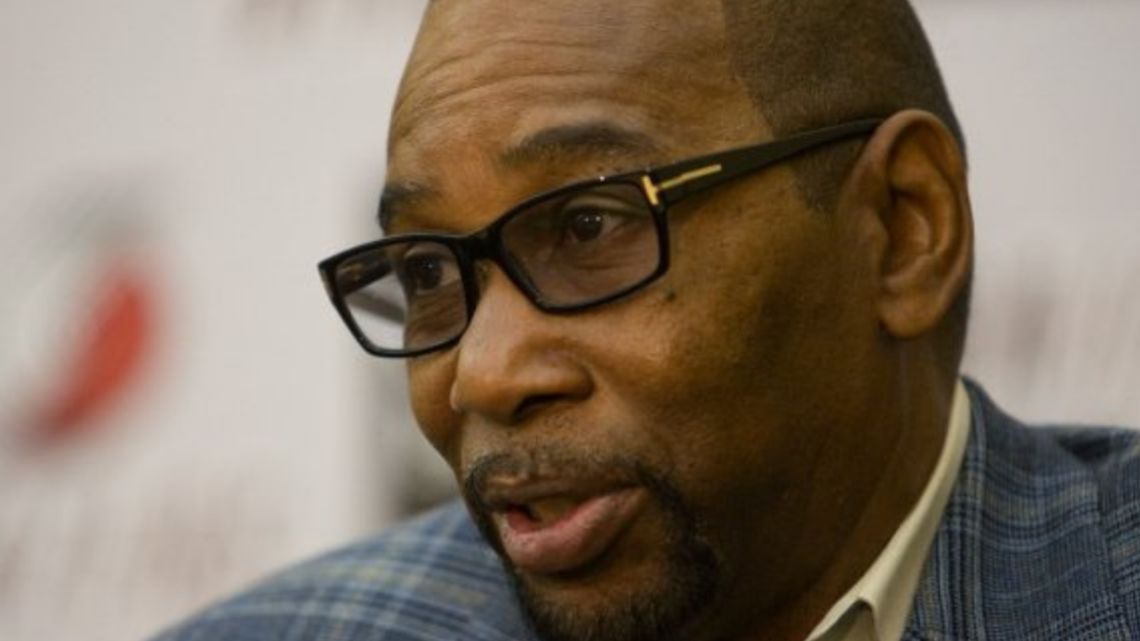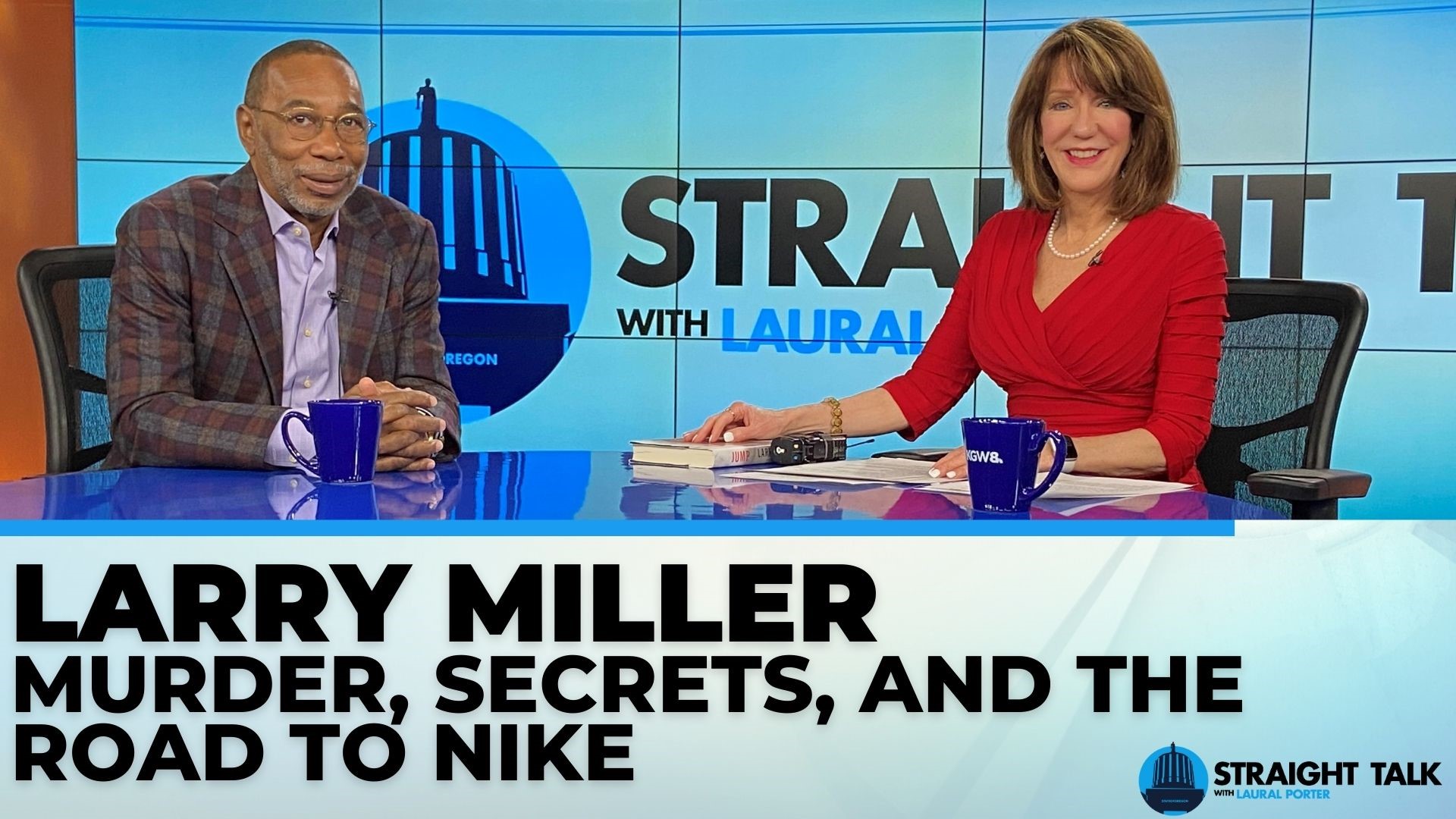PORTLAND, Ore. — Last year, Nike's chair of the Michael Jordan brand, Larry Miller, dropped a wild story on the world. Miller, who was once the president of the Portland Trail Blazers, told Sports Illustrated that in 1965, when he was just 16 years old, he had gunned down another teenager in Philadelphia, killing him.
Miller went on to serve several years in prison for the murder of Edward White, and later for armed robbery. It was a dark secret he carried with him for 56 years, even as he got his life back on track and ascended to higher-profile corporate jobs.
Larry Miller could have seen his entire life fall apart when the news was revealed. Indeed, that's what he'd been fearing for decades, to the point where he went to the emergency room with recurring migraines from the anxiety. When the article was released, followed by the book he co-wrote with his daughter Layla Lacy, Jump: My Secret Journey from the Streets to the Boardroom, Miller had no idea how it would be received. But he found that, for the most part, the reaction was on the positive side.
"I've gotten support and encouragement from people saying that they're glad that I shared the story," he told KGW's Laural Porter on Straight Talk. "That it could maybe help and inspire young people who may be in a similar situation to what I was."


Growing up, Miller was a straight-A student — he called himself the teacher's pet. But he said his focus was mostly on pleasing the parents and teachers in his life. As he grew up, that focused shifted.
"Eventually, it became more important to me to impress people in the street than parents and teachers," he said. "As I got to be like 12, 13 years old, I started getting pulled into the allure of the street."
As a young teen, Miller would eventually join a gang and started getting into trouble.
Larry Miller's memories of the night of Sept. 30, 1965 are blurry. He was young, only 16 years old, and drunk on cheap wine and roaming the streets with friends, looking for revenge for the death of a friend. Edward White was in the wrong place at the wrong time, 18 years old, unarmed, no gang affiliation. Larry Miller's memories of that night are blurry, but he said he does remember what he did.
"I wish I could go back to that day and undo it," he said. "Walk away, or let him walk away."
Miller doesn't mention White's name in the book, and he didn't contact his family before it was released. The crime happened more than 50 years ago, and he wasn't able to track them down until after the book was released, when the New York Times found them and wrote about it. The Times helped Miller get in touch with the family. He and his daughter met with White's sister, his son and his daughter, listened to how the murder impacted their lives, and told them how sorry he was.
Each of them offered their forgiveness. "The best thing that has come out of this process is being able to receive that forgiveness from them," Miller said.
Miller's secret was born after he was released from prison, and tried to get a job. He had completed his bachelor's and MBA from Temple University when he was in prison, and interviewed for an accounting job with Arthur Anderson.
"I went there, spent the whole day interviewing with a number of people, and all day, in the back of my mind, I'm thinking, 'Should I share my background with these people?'" he said.
At the end of the interview, he met with the hiring manager, and decided to come clean. It didn't go well.
"As I'm talking to him, I could see his face changing. Not in a good way. He said, 'Wow, that's an amazing story, and I'm sure you're going to do fine,'" Miller said. But he didn't get the job. "He reached into his pocket and pulled out an envelope and he said, 'I had an offer letter here that I was all ready to give you. But I can't give it to you now. I can't take that chance.'"
Miller said after that experience, he decided he wasn't going to share that information anymore.
"I wasn't going to lie, or deny it if it came up, but I wasn't going to volunteer the information," he said.
And he didn't have to. The question of time served only came up once, years after he was released, and he truthfully answered that he hadn't been to prison in the past five years — it had been longer. Miller rose to more and more prominent positions, eventually landing as the head of the Portland Trail Blazers in 2007. But as his career grew, so did his anxiety that someone would learn about his past.


As it turns out, he may not have needed to worry. At least, not as much. After the book was released, Miller found out that the late Trail Blazers owner Paul Allen already knew. He found out before he was hired as president, and hired him anyway. A team had done a background check, found paper records on the crime in Philadelphia, and told Allen.
"Paul said, 'Well I got one question. How long ago was this?'" Miller said he heard recently. When Allen was told it was more than 30 years ago, he said, "Don't worry about it then."
"For him to be willing to take a chance on me, even knowing what he knew, I have to give him a lot of credibility and a lot of respect for that," Miller said.
The whole experience has been freeing for him, Miller said. Telling his daughter the story was emotionally intense, but cathartic. The nightmares he'd had about going back to jail stopped. The migraines caused by stress, alleviated.
Now he's dedicated to helping others like him, people in prison or people recently incarcerated. Harvard Business School did a case study based on his book, and found that the rate of recidivism, or going back to prison, decreased sharply with the amount of education a person is able to receive — from a 77% baseline down to only 6% when a person is able to get a bachelor's degree, and 0% with a master's. But the prison program that allowed Miller to get those degrees while he served his time no longer exists. For now, he's focused on lending his voice to establishing sentencing reforms, and removing the stigma of incarceration.
"I'm a perfect example of the fact that someone can change their life," he said.

